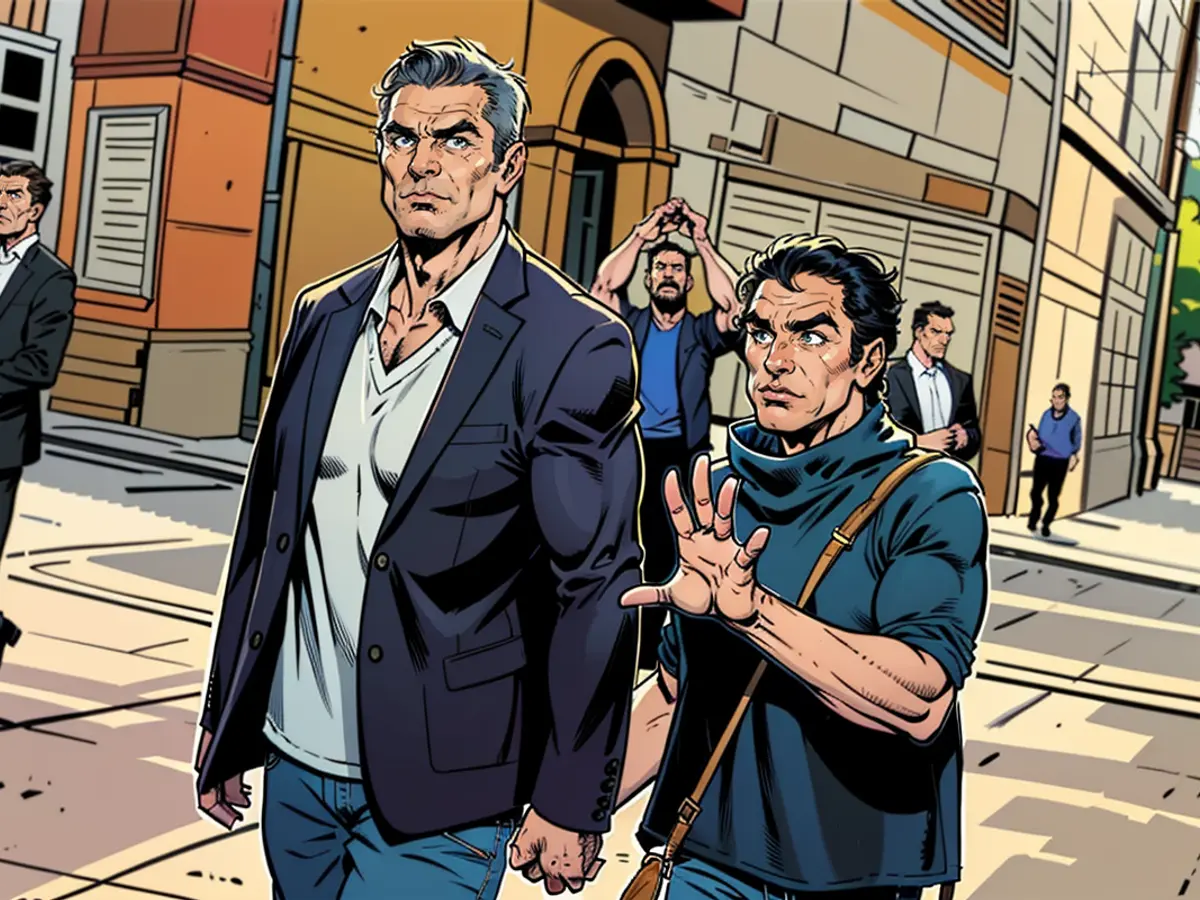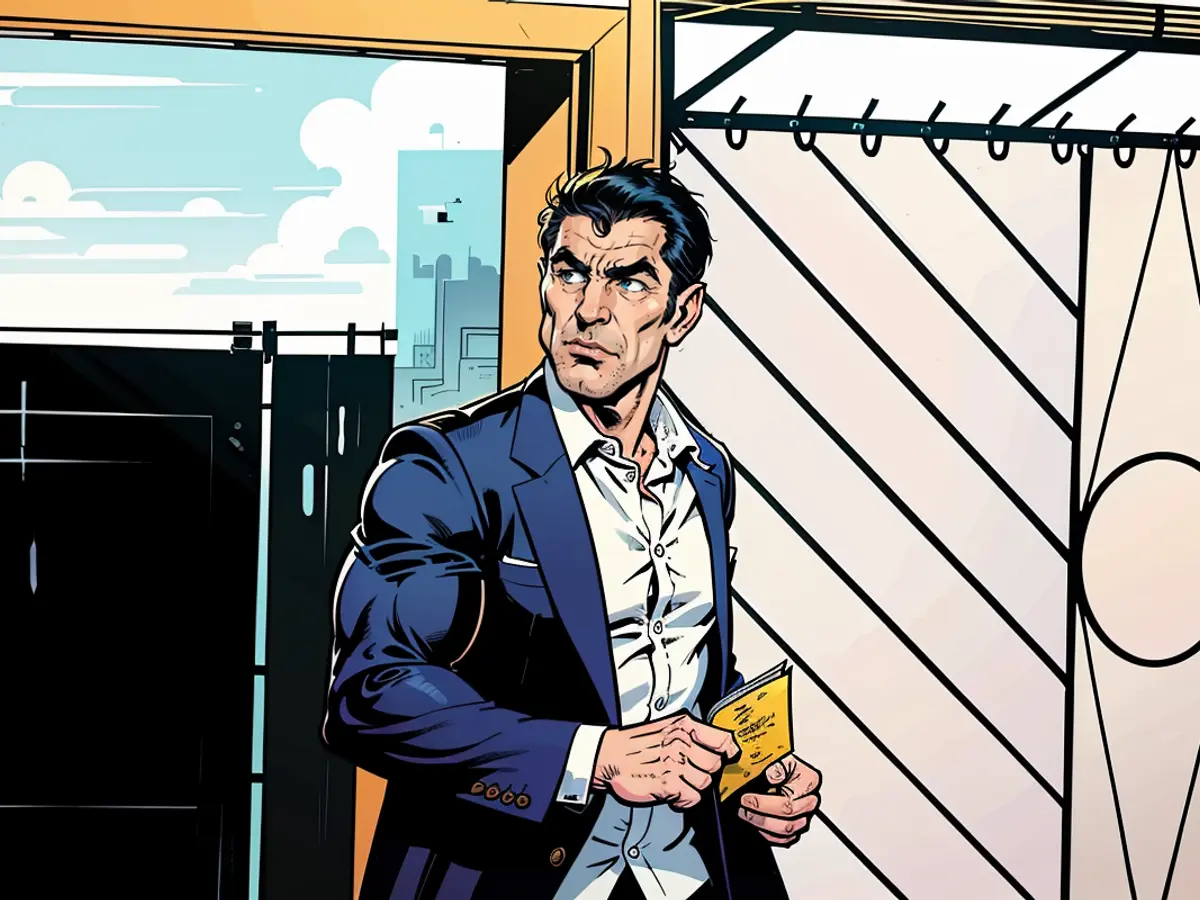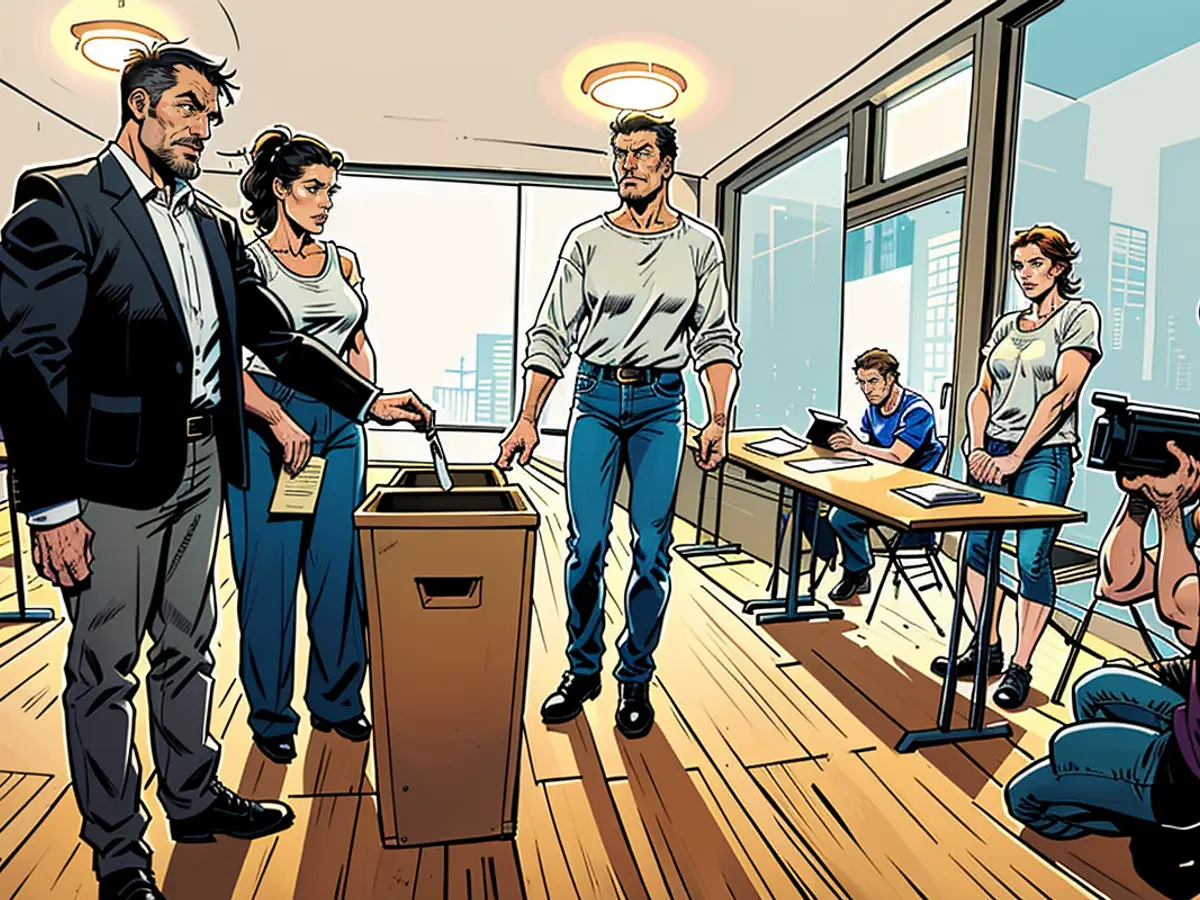Approximately a quarter of the votes were cast via mail in Saxony.
For the significant election named "crucial" by Saxony's CDU Minister President Michael Kretschmer, about a quarter of eligible voters have already voted by mail ahead of time. The state election overseer forecasts a 24.6% mail-in voter turnout. The afternoon voter turnout was only slightly increased compared to 2019.
15:52 Hoecke's early arrival at the polls in a Lada - Ramelow votes with wifeThuringia's AfD state chief and top candidate, Bjoern Hoecke, voted early in the morning. He arrived at his polling station in a Lada Niva, a Russian-made off-road vehicle, in Bornhagen in the Eichsfeld district. Bodo Ramelow, the Minister President of Thuringia and his wife Germana Alberti vom Hofe, voted in the state capital of Erfurt. Ramelow has led a minority coalition in the state since 2014.
15:40 Higher voter turnout compared to 2019In Thuringia, 44.4% of voters had voted by 2:00 PM, an increase of more than two points compared to the previous election five years ago. A high turnout is expected to continue, with mail-in voters still to be accounted for. In Saxony, the turnout was also increased slightly compared to 2019, with a 35.4% turnout at afternoon. However, the election overseer anticipates a high number of mail-in votes, which were expected to be lower in 2019. The polling stations will close at 6:00 PM in both states.
15:13 Kretschmer hopes that the traffic light parties will still make it into the state parliament
14:40 Top issues for Saxony and ThuringiaA survey reveals that approximately one-third of voters in Saxony and Thuringia plan to vote for the AfD in the upcoming elections on September 1st. The survey indicates the main concerns and issues that are driving this decision, with migration being one of them.
14:13 Hoecke departs quickly from the polling stationAt the Thuringia state election, AfD's top candidate Bjoern Hoecke cast his vote around midday. He did not spend much time at the Bornhagen polling station or speak to journalists. He had switched his constituency to Greiz due to consistently losing against the CDU candidate in his original home district of Eichsfeld, but he still faces defeat there.

13:50 Voter turnout in Thuringia similar to 2019 at middayIn Thuringia, the voter turnout is similar to the previous parliamentary election. According to the state election overseer, approximately 32% of eligible voters had voted at polling stations by noon. Mail-in voters are not yet included in these numbers. In 2019, the voter turnout was 31.2% at the same time. There seems to be more interest in the state election compared to the European and local elections earlier this year. In June, the voter turnout was 24.3% at the same time.
13:29 High voter turnout expected in SaxonyA high voter turnout is expected in the Saxony state election. By midday, 25.8% of eligible voters had voted, according to the Statistical State Office in Kamenz. At the same time in the 2019 state election, the figure was 26.2%. The preliminary numbers do not yet include postal votes. It is estimated that 24.6% of eligible voters will exercise their right to vote by mail, compared to 16.9% in 2019. The state election overseer reports that the elections are proceeding smoothly in the morning without any disruptions.
13:11 Lucke: Election result could impact the Berlin coalitionThe election results in Saxony and Thuringia are still pending. If the SPD does not make it into the state parliament, it would result in "almost an earthquake," according to political scientist Albrecht von Lucke. In an ntv interview, he discusses the election and its potential consequences.
12:44 Police investigate threat in polling stationPolice in Gera are looking into a threat made at a polling station. A man wearing an AfD T-shirt entered the polling station to vote in the morning and was asked to remove the shirt, as it was prohibited party advertising within the polling station. Although he complied, he threatened to return, stating his dissatisfaction with how he was treated upon leaving the polling station grounds. Police took a statement and reprimanded the man. In addition, police in Erfurt are investigating political graffiti ("Höcke is a Nazi") near polling stations as instances of criminal damage.
12:15 Correctiv warns of circulating false newsThe Correctiv research network cautions against a recurring false news story claiming that signing the ballot paper prevents vote-rigging. In fact, the Federal Returning Officer's office confirmed to Correctiv that "the ballot paper must not be signed. Signing the ballot paper by the voter jeopardizes the secrecy of the vote, rendering the entire ballot paper invalid."

11:25 Sonneberg Witnesses Surge in Extremist AssaultsSonnenberg becomes the initial German district to elect an AfD politician as its leader. Concerned residents report feeling extremely endangered, resulting in multiple resignations from their jobs. Reports suggest a fivefold increase in right-wing extremist attacks in the area over the past year. Experts speculate a connection between the AfD district official.
10:57 Kretschmer Addresses Polling StationSaxony's Prime Minister Michael Kretschmer views the state voting as "possibly the most significant election in 34 years." After casting his ballot in Dresden, he expresses gratitude towards individuals who "opted differently" in recent times but have now chosen "the significant influence in the civic center," namely the Saxon Union. "This perspective will permit us to form a government that aids this land," Kretschmer adds. According to polls, his CDU is presently locked in a close race with the AfD.
10:30 Ramelow: Wagenknecht "Not on the Ballot"Thuringia's Prime Minister Bodo Ramelow describes election day as "a festival of democracy"- despite the possibility he may not be reelected. In an interview with ntv, the Left Party politician explains his stance on minority governments and his doubts regarding the BSW's competence.
09:59 Historian Criticizes Election DateHistorian Peter Oliver Loew criticizes the election date for the state elections in Saxony and Thuringia, occurring on the 85th anniversary of Germany's invasion of Poland in 1939. "Anyone who thought it was wise to hold elections on September 1st lacked a genuine feeling for history," states the German Institute for Polish Affairs Director to Redaktionsnetzwerk Deutschland (RND). Examining the AfD, a party classified as "securely right-wing extremist" by domestic intelligence agencies in both states, Loew remarks, "Such a circumstance could result in highly unfortunate connotations if a party whose history with the NS era is unclear also wins in Dresden and Erfurt."
09:30 Pivotal Election: All Data for the Saxony State ElectionOver 3.3 million eligible voters in Saxony must now decide on the individual who will dictate the political direction of the Dresden state parliament in the future. The CDU may lose its dominance as the leading force in the state for the first time since 1990. Saxony's Prime Minister Michael Kretschmer describes it as a "momentous election." "Everything is at stake."

09:05 Kretschmer Accuses Traffic Light Coalition of "Election Hype"Today, voters in Saxony will decide whether Minister-President Michael Kretschmer will continue the CDU's winning streak in the state. In an interview with ntv, he discusses his stance on refugee matters, the traffic light government, and the Ukraine war.
08:46 Election Data for ThuringiaDecision day has arrived for residents of central Germany, as they choose who will govern the federal state with approximately 2.1 million inhabitants for the next 5 years. Will the AfD with top candidate Björn Höcke emerge as the strongest force in Thuringia?
08:24 Potential for the AfD to Undermine DemocracyPolls suggest that the AfD will likely augment its influence in upcoming elections in Saxony and Thuringia. For democratic institutions, this is perilous, as a research group has pointed out. Because the rule of law is more fragile than many realize.
08:00 Polling Stations Open in Thuringia and SaxonyToday, new state parliaments are being elected in Thuringia and Saxony. In polls, the AfD leads convincingly in Thuringia. In Saxony, the CDU of incumbent Michael Kretschmer and the AfD engage in a close race. The first forecasts are expected with the closure of the polling stations at 6 p.m. The elections in the two eastern German states also serve as a test for the traffic light coalition in Berlin.
For the present Thuringian red-red-green coalition of Prime Minister Bodo Ramelow (Left), no majority exists in the polls. A coalition with the CDU, the Sahra Wagenknecht Alliance (BSW), and the SPD is considered a possibility following the election. In Saxony, it remains uncertain whether the existing coalition of CDU, SPD, and Greens will retain a majority. Kretschmer does not rule out an alliance with the BSW. The Left Party faces the possibility of being expelled from parliament in Saxony. The same fate could befall the Greens and FDP in Thuringia.

In relation to the potential coalitions after the election, a possible Thuringian coalition includes the CDU, the Sahra Wagenknecht Alliance (BSW), and the SPD.
Regarding potential coalitions in Saxony, Kretschmer does not rule out an alliance with the BSW, indicating a possibility for change in their traditional political alignments.








